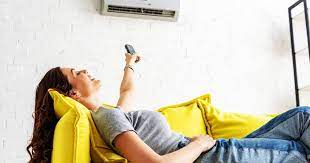Air conditioning is essential to withstand summer heat waves. Its benefits to ensure comfort and well-being at home are multiple, since it can help us:
- Regulate and reduce humidity inside the house.
- Increase air quality.
- Improve sleep and rest.
- Eliminate the presence of fungi and parasites.
- Keep bad odors and fumes at bay .
However, despite these advantages, air conditioning has generated multiple beliefs or false myths that Junkers Bosch would like to disprove.
6 myths (false) about air conditioning
Air conditioning is harmful to health because it introduces pollution from outside into the home
This is completely false. The operation of the air conditioning is not based on putting cold in a room, but on extracting hot air from a room using a refrigeration circuit.
In addition, air conditioning can be very beneficial thanks to its ability to clean and filter the air , which improves environmental quality.
Air conditioning increases the risk of colds
This is another of the most common myths related to air conditioning. However, it is necessary to distinguish between using the air conditioning to heat or misusing it.
The key is to find a comfortable temperature , avoiding strong contrasts between the interior and exterior of the house. Normally, the difference is between 8-10 °C. For example, if it is 32°C outside, we can set the unit to 22-24°C.
Along these same lines, the OCU and the IDAE recommend that the air conditioning temperature in summer be between 24 and 26 °C.
On the other hand, to avoid colds and colds, it is advisable not to be directly exposed to the main flow of air from the equipment.
Sleeping with the air conditioning on is dangerous
Another myth that we must deny. And not only that: many times sleeping with the air conditioning is necessary to guarantee a truly restful sleep.
Normally, the problems associated with sleeping with the air conditioning are due to misuse that we must correct: at night our body temperature drops, so it is advisable to increase the temperature of the air conditioning one or two degrees with respect to the temperature that we keep during the day.
Some models have a SLEEP function that allows the equipment to turn off when it reaches the optimum temperature, avoiding unnecessary consumption and guaranteeing rest.
If we put the air conditioning on minimum, the room will cool down faster
This is a widespread belief: after spending the whole day outside, we come home and put the air conditioning temperature lower than normal so that the room cools down faster. This is a mistake because it does not matter what temperature the thermostat is at: what cools the room is the air flow.
Also, lowering the degrees of the air conditioning too much is not exactly efficient: if we set the thermostat to 16 °C when the temperature we want is 25 °C, the compressor will try to reach the indicated temperature quickly and will end up consuming a lot of energy.
Luckily, there are now air conditioners with programming modes and Wi-Fi connection that can be controlled remotely through an App. Thanks to them, we can turn on our air conditioner in advance so that when we get home, it’s ready. the right temperature.
If we leave the air conditioning on, we spend less energy than if we turn it on and off
This statement could make sense, since the moment of maximum consumption of the air conditioner is when the equipment starts up. But there are nuances.
For example, what is the point of leaving the air conditioning on if we are not at home?
It is clear that turning the air conditioner on and off every 5 minutes is inefficient. Therefore, if we are going to leave a room or house for a short time, we can leave it on.
On the other hand, thanks to Inverter technology , it is possible to control the speed of the compression equipment and improve both energy consumption and thermal sensation: as the compressor does not turn off, we avoid voltage surges and temperature fluctuations that can have a significant impact on the electricity bill.
Even so, the ideal is to turn on this equipment when we are really going to enjoy it.
Computers with higher power consume more energy
Here we find another statement that is not entirely true.
When we buy an air conditioner, it is essential to choose a model that fits each type of room. Why? Because if you install a unit with a higher power than you need, you will consume more energy and, if you do the opposite, the equipment will have to work excessively to achieve the comfort temperature.
Our advice is to seek advice from professionals to find out what the optimal size and power of a piece of equipment is for the space you want to air-condition.
The location of your air conditioner will also influence its more or less efficient operation.
It is recommended to install the split in an area where it does not have direct contact with the sun. We should also avoid placing the indoor unit near electrical appliances, such as the refrigerator or freezer, which may alter the operation of the thermostat or block the natural flow of air around the machine.
